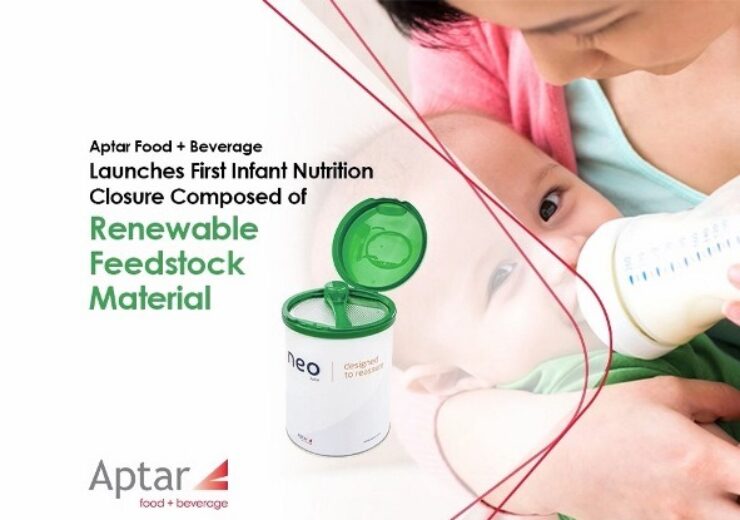Aptar has produced the new polypropylene (PP) closure using sustainably sourced renewable feedstock from vegetable oil waste and residue such as used cooking oil and residues from oil processing

Aptar Food + Beverage has introduced sustainable Neo closure for the infant formula market. (Credit: AptarGroup, Inc.)
Aptar Food + Beverage, a business unit of AptarGroup, has introduced sustainable Neo closure for the infant formula market.
The company said that a renewable feedstock material, based on the mass-balance approach, is used to produce new infant nutrition closure.
Aptar has produced the new polypropylene (PP) closure using sustainably sourced renewable feedstock from vegetable oil waste and residue such as used cooking oil and residues from oil processing.
The reduced use of fossil-based resins in food-grade products will help cut down the carbon footprint of a closure.
According to the company, the new closures help to offer the same level of safety and convenience, as the resin’s characteristics of fossil-based and renewable feedstock are the same.
The new closures are also said to enable infant nutrition brands to meet their sustainability goals related to the reduction of CO2 emissions, and the integration of recycled or bio-based content measured by the mass balance model.
In addition, Aptar is aiming for a 10% increase in the recycled content of the firm’s dispensing solutions for the beauty, personal care, home care, food and beverage markets by 2025.
Recently, the company has secured SCC PLUS*- Certification for Aptar Freyung, which allowed the use of renewable feedstock material for closures production.
In June this year, Aptar Food + Beverage collaborated with REBO to launch a new smart reusable water bottle, which will be integrated with Bluetooth technology in the cap to track the amount of water consumed.
